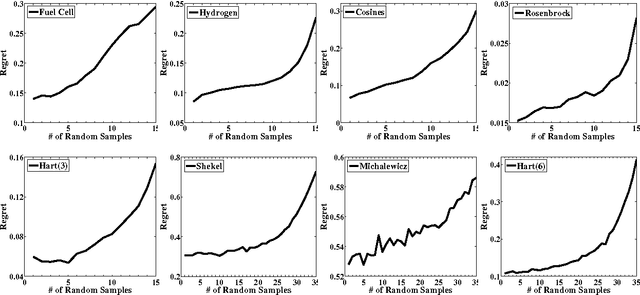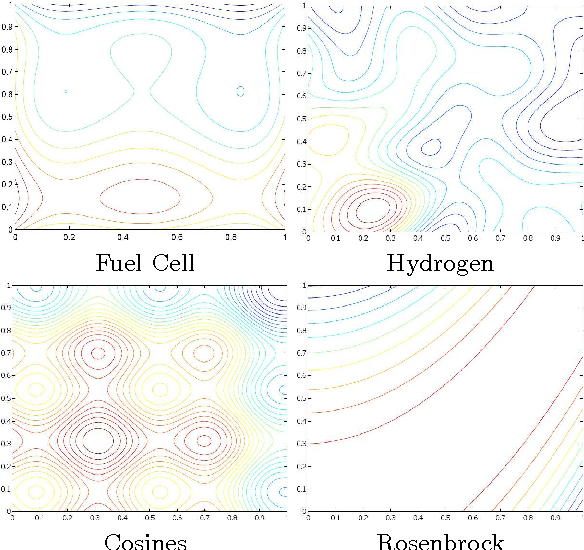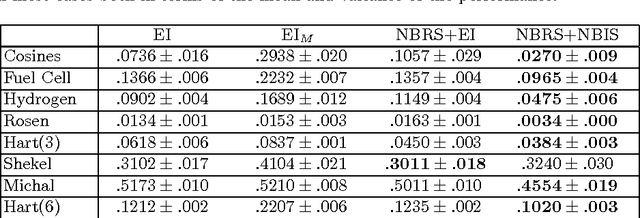A Lipschitz Exploration-Exploitation Scheme for Bayesian Optimization
Paper and Code
Jul 16, 2013



The problem of optimizing unknown costly-to-evaluate functions has been studied for a long time in the context of Bayesian Optimization. Algorithms in this field aim to find the optimizer of the function by asking only a few function evaluations at locations carefully selected based on a posterior model. In this paper, we assume the unknown function is Lipschitz continuous. Leveraging the Lipschitz property, we propose an algorithm with a distinct exploration phase followed by an exploitation phase. The exploration phase aims to select samples that shrink the search space as much as possible. The exploitation phase then focuses on the reduced search space and selects samples closest to the optimizer. Considering the Expected Improvement (EI) as a baseline, we empirically show that the proposed algorithm significantly outperforms EI.
 Add to Chrome
Add to Chrome Add to Firefox
Add to Firefox Add to Edge
Add to Edge